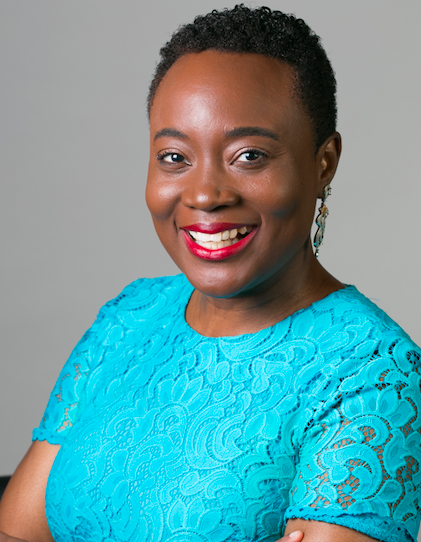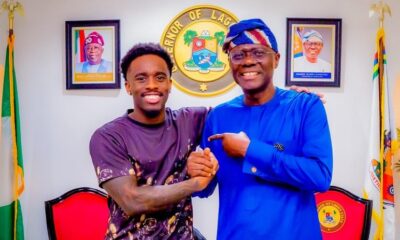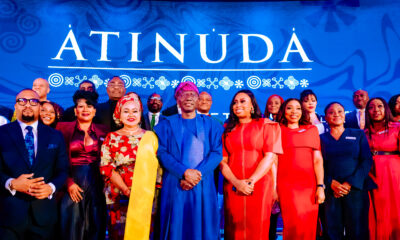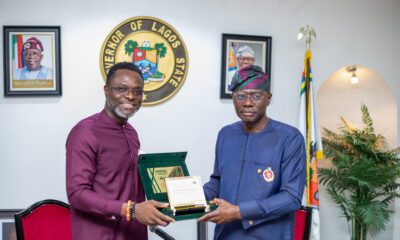Features
Mary Olushoga: Why Nigeria Urgently Needs a Women’s Justice Agenda
Nigeria has a long way to go when it comes to women’s rights, as political, religious and cultural nuances continue to shape and can restrict the visibility, participation and leadership roles available to Nigerian women. However, we can start by implementing some of these recommendations and ensure that the women’s justice agenda is created and is a priority at the local, state and federal levels of government.
 On April 28, 2019, Matt Obono, convener of the TAP Initiative, reported that 70 women were arrested and taken to the Utako police station in Abuja.
On April 28, 2019, Matt Obono, convener of the TAP Initiative, reported that 70 women were arrested and taken to the Utako police station in Abuja.
As I type, 70 girls were arrested and brought to Utako Police station last night. This is in addition to the ones who were arrested on Friday night. Their offense; clubbing and in some instance, prostitution. Some have been assaulted with injuries in their vaginas.
— M. M. Obono (@martobono) April 28, 2019
Their offence? Partying at a nightclub. But it did not stop there.
Obono reported allegations of sexual abuse and molestation. “The joint task force who arrested these girls also molested and sexually assaulted them,” he said.
In a bid to justify their illegal arrest and detention, the 70 women were accused of crimes they did not commit. These women were publicly shamed, humiliated and paraded by the Nigerian authorities before the media while the rest of the world watched. This is not the first time that the Nigerian government will impede on and violate the rights of Nigerian women.
Only two years ago, Dorothy Njemanze, Edu Ene Okoro, Justina Etim and Amarachi Jessyforth won a lawsuit against the Nigerian government, and were each awarded damages in the sum of six million naira (about $16,500) after they were abducted, unlawfully detained, and assaulted sexually, physically, and verbally at different times between Janaury 2011 and March 2013 in the hands of the Abuja Environmental Protection Board (AEPB) and other government agencies, such as the police and the military.
They were arrested and accused of being prostitutes simply on the grounds that they were found on the streets at night.
Nigeria has a long way to go when it comes to women’s rights and attaining gender equality. In 2016, I penned the article, “A Year in Review: What It Means to be a Woman in Nigeria,” where I tried to enunciate the many issues facing women in our country. Since writing the article, not much has improved for women in Nigeria, in spite of the numerous organizations fighting tirelessly for gender equality and women’s rights. However, these women are pushing the envelope for good, and must be commended. Political nuances, religious and cultural beliefs continue to hinder on our progress.
To date, the Gender and Equal Opportunities Bill is yet to be passed, and has been voted against repeatedly by Nigerian lawmakers, majority of whom are men. (Women in parliament constitute just 5.6 percent). To date, there remains a lack of visible female leadership in politics, policy and governance, and there continues to be an absence of women’s participation in crucial decision making circles from business to technology.
Here are examples:
Seeing these photos from an appreciation dinner for Lagos State’s incoming governor, Babajide Sanwo-Olu, one is only left wondering, where are the women?
A big thank you to the organisers of the special appreciation dinner yesterday in Lagos.
There is a lot of work ahead of us, but we are ready and gearing to go
We are open to new & innovative ideas that will help us build #ForAGreaterLagos pic.twitter.com/C6dPudxOut
— Babajide Sanwo-Olu (@jidesanwoolu) April 28, 2019
These from the Foundation for Good Governance for Development in Nigeria also beg the same question. Not represented at the event are women leaders from President Muhammadu Buhari’s team.
PHOTOS:
President @MBuhari today receieved a delegation of the Foundation for Good Governance for Development in Nigeria, led by Dr Arado Ibrahim Bayo, at the State House in Abuja. #AsoVillaToday pic.twitter.com/WlJbsiLQOk
— Government of Nigeria (@AsoRock) April 23, 2019
In a conversation with Angela Merkel, the first female chancellor of Germany, President Buhari, in 2016, made it clear that women (referring to his wife Aisha Buhari)only belong to the kitchen and to the bedroom. To date, he is yet to apologize for his comments about women.
Chief Executive Officer of Alpha Reach and popular social media commentator, J.J. Omojuwa wrote, “Nigeria is desperate for women in politics and governance” as he posted a photograph of Nigeria’s all male leadership team.
Nigeria is desperate for more women in politics and governance. pic.twitter.com/cNmfMwFFuW
— JJ. Omojuwa (@Omojuwa) April 24, 2019
What can be done to improve the participation of women across all sectors? What can we do, as active citizens, to ensure progress in gender equality and women’s rights: Here are a few
recommendations:
- Pass the Gender and Equal Opportunities Bill.
- Fund and support women’s organizations and initiatives as women’s rights organizations help to strengthen the links between leaders and the women in the communities they represent.
- Encourage and implement women’s participation in leadership roles at the local, state and federal levels of government.
- Establish a sex offenders’ registry and database. Despite an overwhelming number of reported cases of sexual assaults, Nigeria has recorded only eighteen rape convictions in its legal history in a country of 190 million people.
- Protect women and girls in Nigeria through new laws and policies; this will help Nigeria achieve the Sustainable Development Goals and Agenda on Women and Girls.
Indeed, Nigeria has a long way to go when it comes to women’s rights, as political, religious and cultural nuances continue to shape and can restrict the visibility, participation and leadership roles available to Nigerian women. However, we can start by implementing some of these recommendations and ensure that the women’s justice agenda is created and is a priority at the local, state and federal levels of government.
The women’s justice agenda will advance, implement and improve the reproductive, economic, political and social rights for all Nigerian women. The women’s justice agenda will ensure that the Nigerian government will be held accountable, and will remain at the forefront of this critical fight to protect women’s rights and ensure fairness for all women living in Nigeria.























